Umda * उम्दा ~ Sindhi Embroidered Stoles |F|
- Availability: Out Of Stock
- Made & Mkt by: MUSE ~ By Guneet Kaur
- Product Code: 4100-MS-SH-11
- Weight: 180.00g
- Dimensions: 99.00in x 93.00in x 0.00in
Rs.2,074.97
A range of Sindhi hand embroidered stoles & Dupattas made by the Sindhi women near borders of Rajasthan.Each piece is designed to allow free creative expression and celebrate their individuality. Individually designed traditional & contemporary motifs and a signature of every women, who handcrafted it.
The typical dispatch time is 2-3 days; however, in special cases, it may take longer. Please refer to the product details section for specific timelines. Once dispatched, we will share the tracking details with you.
For returns, you can file a request within 24 hours of receiving the product. If the package is damaged, please make a video while unboxing and share images of the damaged item along with your return request.
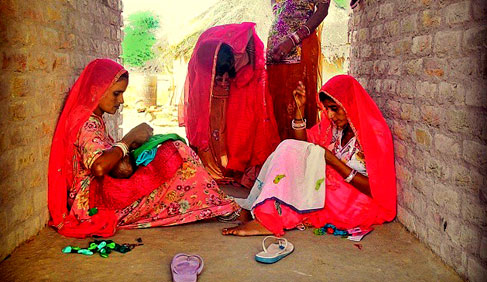
A mother, wife, daughter, sister, a farmer, a mason, a carpenter, a cattle rearer, a sweeper, a washer, a cook, an individual, a woman and at last an artisan trying to live with peace and pride. Such are the women of the Meghwal community from Rajasthan.
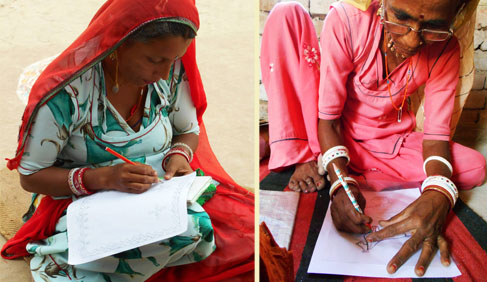
Originally, migrants from Pakistan, these Hindustani folks settled in villages lining the Indian border. Cattle rearers and agriculturists by occupation, later, with the support of Indian government they were allocated agricultural land. Soon after which they migrated to the present day Rajasthan. Their language is a mix of Hindi, Sindhi and Urdu...
While men go to the field, women are occupied in household activities, managing children and assisting in agriculture. They learnt it at an early age, since the average age of marriage is 18 years, sometimes even earlier…. They live in nuclear families as a part of their custom. An average house has 7-8 members including 3-4 children.
The months of March to April and October to November bring the harvest and their festivals like Deepwali, Navratri, Teej etc. During this time a woman or a girl’s day begins at 4am and ends at 10pm. Nonetheless, these women find time to embroider.
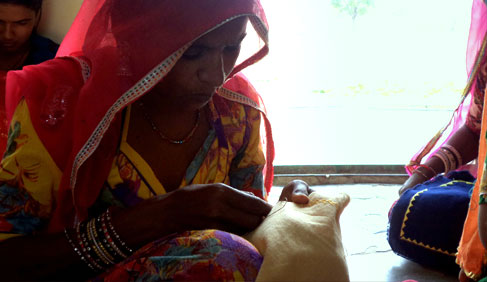
Hand embroidering has ever since been a part of these dessert dwellers as an everyday wearable and the mark of one’s skills, for instance, during marriages, which still happen within the caste. Every gift to the groom is hand embroidered, even the most unimaginable object like money, bidi, mouth freshener packets etc are put along to decorate the embroidered patch!!
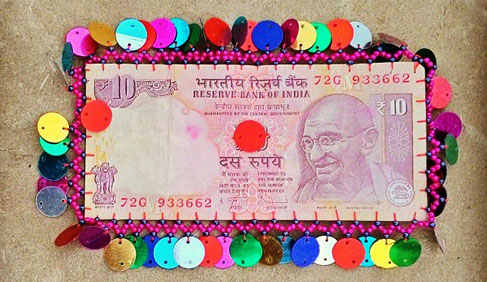
They practice many types of embroideries, namely Soof, Kharek and Pakko. With modernization and government initiatives they have also learnt new contemporary stitches, although Pakko style continues to be their forte. Pakko embroidery is done by the Sodha, Rajput & Meghwal communities. Pakko literally means solid. The designs and motifs are very similar to Ahir, but slightly more geometric. The outline is done with chain stitch, but the filling is a dense variation of buttonhole stitch and open chain stitch, which gives an embossed look.
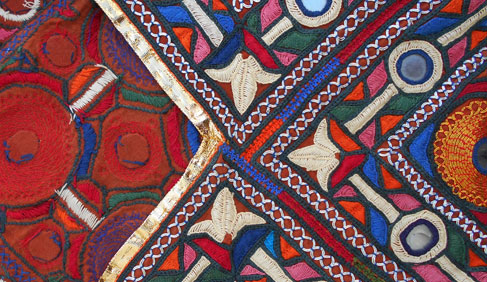
Mirrors are used frequently. Like Ahir, originally the designs were done directly on the fabric without any stencil, the wrap and weft are their guides and needle is their brush.
Local names of the stitches are:
Cross stitch - Kanadaa
Mirror stitch - Kaanch (Pakka)
Chain stitch - Lath
Open chain stitch - Sankali/Pakki jaat
Lazy daisy stitch - Chirki ki panadi
To them, embroidering has been an expression, a reason to sit together, memories handed over by a mother to her daughter and a matter of pride. The people are culturally rooted. Age old practices are still being followed, except those that have lost relevance due to globalization.
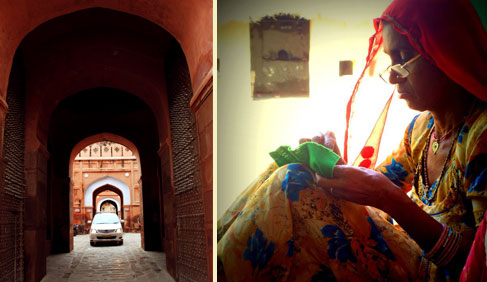
Yes!! Globalization!!It is not a new term for them, as worldwide channels are available to these people through dish TV. With electricity reaching far off villages and television box getting affordable, a five year old wearing jeans, dancing to the tunes of Dabang with sunglasses dangling at the back of his collar might not be a rare sight but the parameters of true success for a country whose economy and essence is based on its legacy of skilled artists- artisans, a country where every person, cluster, village was not only self-sufficient and sustainable but opulent and openly sharing its knowledge and wealth with others... The parameters will truly be achieved when that five year old grows up to take pride in what he or she was born with and will know how to steer it to his and his people's good.
| Craftsmen | |
| Made by | Artisans With Guneet Kaur |
| Village | sri Ganganagar, Rajasthan |
| Instruction | |
| Note | Imperfections and variations in the product cannot be termed as defects, as these are intrinsic to the handmade process. these products should be hand washed only. These fabrics should not be bleached or scrubbed and should be reverse dried in shade. The fabrics should be ironed on reverse to preserve its charm. |
Sunset at the great Narmada, the stepped ghat dotted with small temples, flickering diyas floating downstream in prayer, the river glowing a flaming g..
Rs.8,459.93
Sunset at the great Narmada, the stepped ghat dotted with small temples, flickering diyas floating downstream in prayer, the river glowing a flaming g..
Rs.8,459.93
Sunset at the great Narmada, the stepped ghat dotted with small temples, flickering diyas floating downstream in prayer, the river glowing a flaming g..
Rs.8,459.93
Sunset at the great Narmada, the stepped ghat dotted with small temples, flickering diyas floating downstream in prayer, the river glowing a flaming g..
Rs.8,459.93
Sunset at the great Narmada, the stepped ghat dotted with small temples, flickering diyas floating downstream in prayer, the river glowing a flaming g..
Rs.8,459.93
Sunset at the great Narmada, the stepped ghat dotted with small temples, flickering diyas floating downstream in prayer, the river glowing a flaming g..
Rs.7,770.07
Sunset at the great Narmada, the stepped ghat dotted with small temples, flickering diyas floating downstream in prayer, the river glowing a flaming g..
Rs.7,770.07
Spring tickles my feet as love soaks this air,Is it a new reason to live, or just this excuse of the fair.I can wait to look my best, as I embrace the..
Rs.5,600.07
ABOUT KABBISH - The beauty of a craft is in its effect on you, KABBISH derives
its inspiration from color black “black is poetic, it’s not Gothi..
Rs.2,249.78
Gold and silver ornaments have been a part of daily lives of Indian women since the beginning. Out of them, people of Rajasthan hold a mentionably spe..
Rs.2,000.13
“If an image has to be made, it must be made of wax first” Vishnusamhita, 5th century AD.Under clouds of smoke emanating from earthen lamps, amid batt..
Rs.675.08
Some wandering rays of an aimless light,Carelessly slipped into my loom the previous night…Their whimsical sparks got woven away,Within the mortal str..
Rs.9,979.96
SAMBALPURI is a term used for the IKATs made in western Orissa. The whole of Western Orissa was undivided and called Sambalpur in earlier ..
Rs.399.83
Sieving through a dense layer of transport, haphazard and junky on a hard road we are in a small town placed between the clarity of an established cit..
Rs.3,100.15
Gathering commences in the middle of deserted pavilions where velvet carpets adorn the Dessert lands & Manganiyars play folk music as a bugle for ..
Rs.512.10 Rs.1,025.18
Gathering commences in the middle of deserted pavilions where velvet carpets adorn the Dessert lands & Manganiyars play folk music as a bugle for ..
Rs.512.10 Rs.1,025.18
Gathering commences in the middle of deserted pavilions where velvet carpets adorn the Dessert lands & Manganiyars play folk music as a bugle for ..
Rs.512.10 Rs.1,025.18
Gathering commences in the middle of deserted pavilions where velvet carpets adorn the Dessert lands & Manganiyars play folk music as a bugle for ..
Rs.512.10 Rs.1,025.18
A familiar chatter swells in the air as feet chase the trail of a carelessly flying odhani in the by-lanes of Bhuj, spilling colors all over. While&nb..
Rs.3,070.11 Rs.3,411.84
A familiar chatter swells in the air as feet chase the trail of a carelessly flying odhani in the by-lanes of Bhuj, spilling colors all over. While&nb..
Rs.9,309.81 Rs.10,344.83
A familiar chatter swells in the air as feet chase the trail of a carelessly flying odhani in the by-lanes of Bhuj, spilling colors all over. While&nb..
Rs.3,460.10 Rs.3,845.15

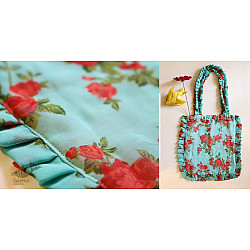
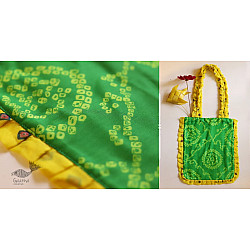
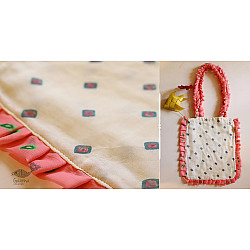
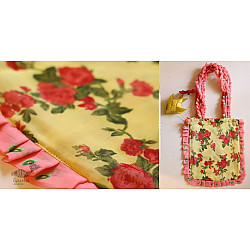
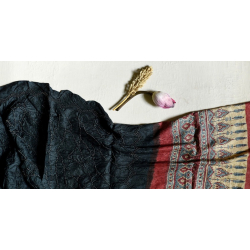
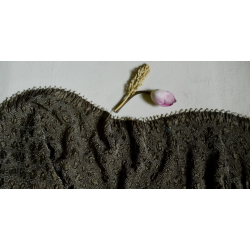
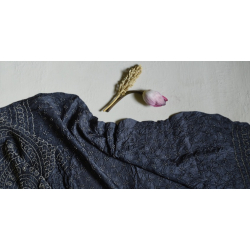
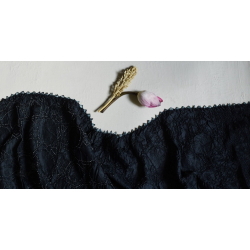
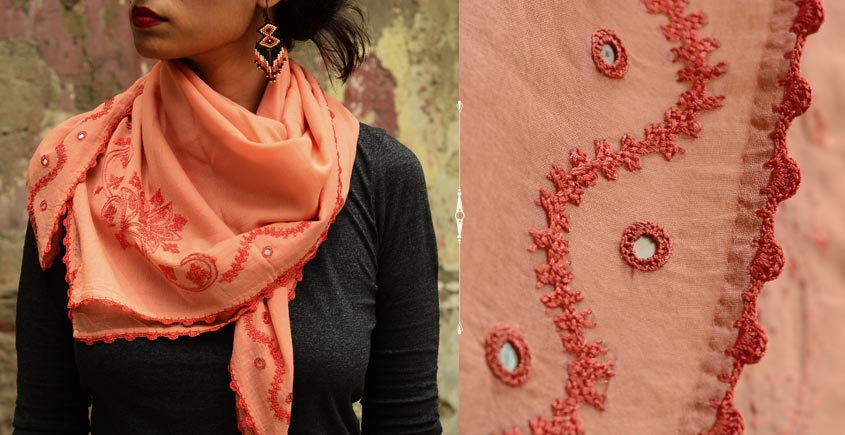
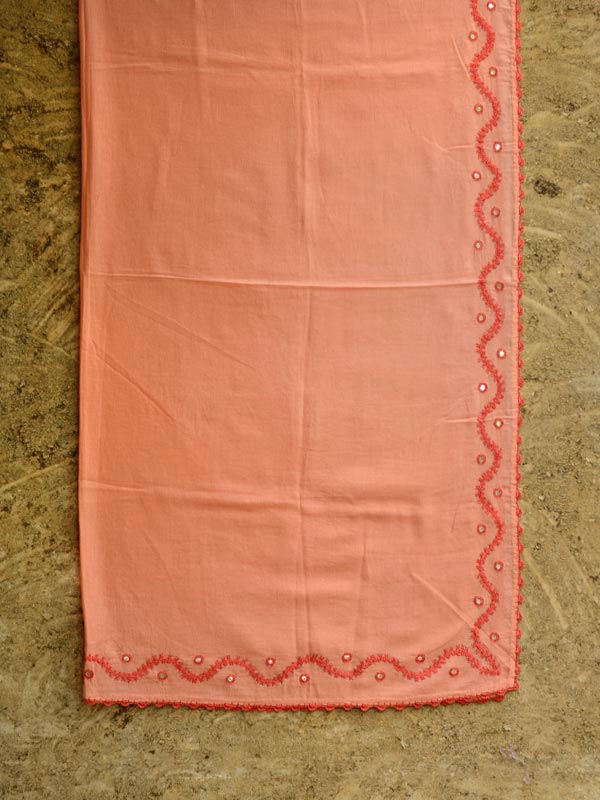
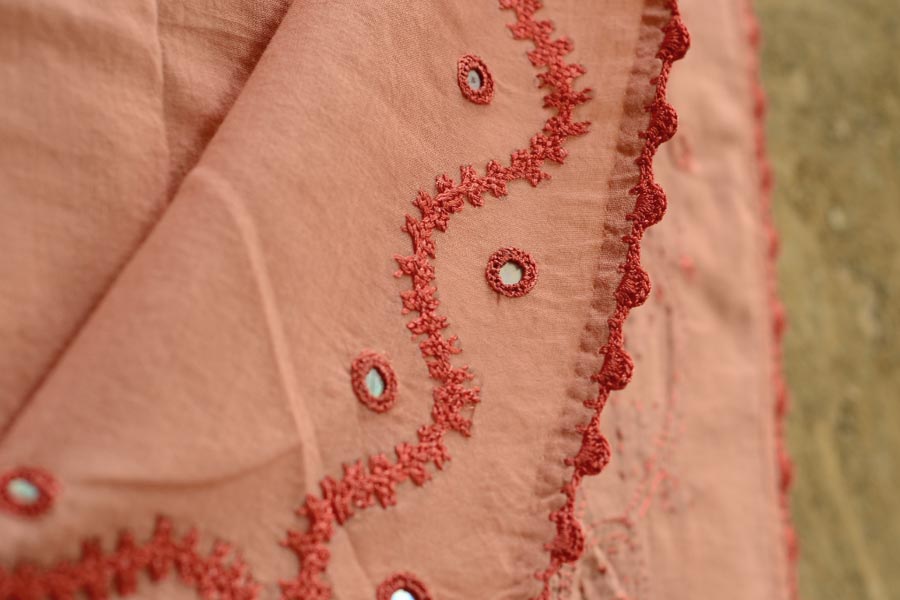



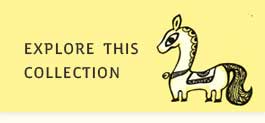
-225x150w.jpg)
-225x150w.jpg)
-225x150w.jpg)
-225x150w.jpg)
-225x150w.jpg)
-225x150w.jpg)
-225x150w.jpg)
-225x150w.jpg)
-225x150w.jpg)
-225x150w.jpg)
-225x150w.jpg)
-225x150w.jpg)
-225x150w.jpg)
-225x150w.jpg)
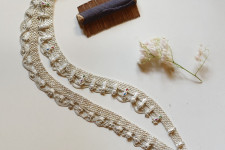
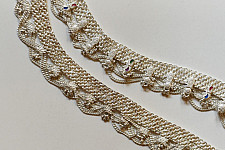
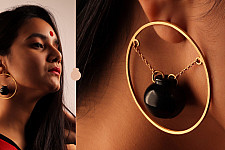
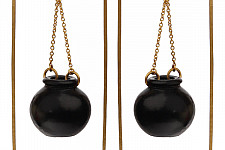
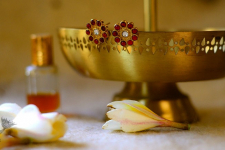
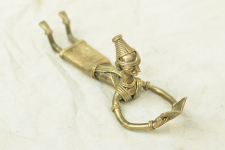
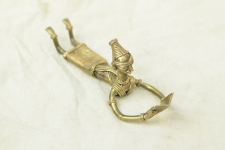
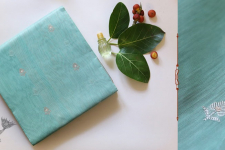
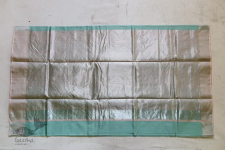
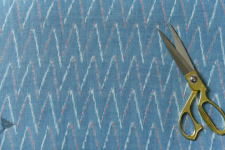
-225x150w.jpg)
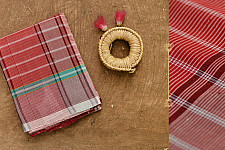
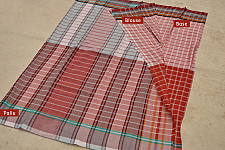
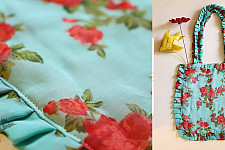
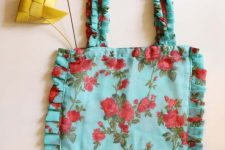
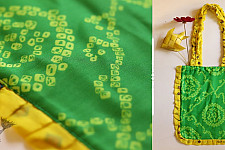
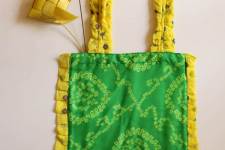
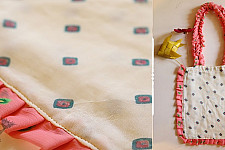
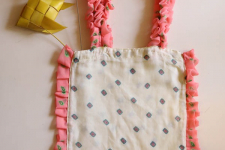
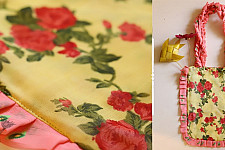
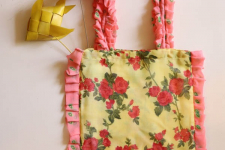
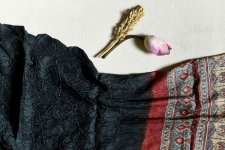
-225x150w.jpg)
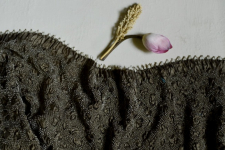
-225x150w.jpg)
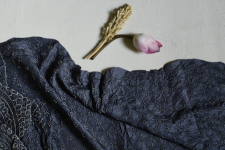
-225x150w.jpg)

